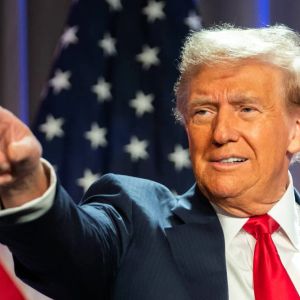US financial regulators are undergoing significant shifts in their approach to cryptocurrency oversight, with both the Securities and Exchange Commission (SEC) and the Commodity Futures Trading Commission (CFTC) making notable changes to their enforcement strategies. The SEC has reassigned key personnel involved in crypto-related litigation, while the CFTC is moving away from its previous approach of “regulation by enforcement” to focus more directly on fraud cases. These adjustments come as the regulatory landscape for digital assets continues to evolve, influenced in part by the Trump administration’s push for a more structured and business-friendly approach to crypto oversight. SEC Shakes Up Leadership as Crypto Enforcement Retreats: Key Litigator Moved to IT Department The US Securities and Exchange Commission (SEC) has reportedly reassigned its chief litigation counsel, Jorge Tenreiro, from overseeing enforcement lawsuits to the agency’s IT department. This shift, first reported by The Wall Street Journal on Feb. 5, is part of a broader scaling back of the SEC’s aggressive stance on cryptocurrency regulation. The SEC’s decision to transfer Tenreiro—who was instrumental in high-profile enforcement cases against major crypto firms such as Coinbase, Ripple, and Tron—follows a recent wave of internal shake-ups. The agency also reassigned Natasha Guinan, a senior lawyer in the chief accountant’s office who was a key architect behind the controversial Staff Accounting Bulletin 121 (SAB 121). While Tenreiro’s new role is confirmed, Guinan’s reassignment details remain undisclosed. The latest personnel changes add to a growing trend of the SEC easing its crypto enforcement efforts. Just a day before news of Tenreiro’s reassignment broke, The New York Times reported that the SEC had begun scaling back its 50-member crypto enforcement unit, including moving at least one senior lawyer out of the division. It remains unclear whether Tenreiro was the individual referenced in the report. The SEC’s enforcement approach under Chair Gary Gensler had been one of the most aggressive in the agency’s history regarding cryptocurrency. Gensler’s tenure saw numerous lawsuits targeting leading crypto firms, with Tenreiro playing a key role in the legal battles against industry giants. Trump, who previously vowed to end the SEC’s crackdown on the crypto industry, recently signed an executive order on Jan. 23 establishing a crypto working group aimed at developing a clearer legal framework for digital assets. This political shift, combined with the reassignment of key personnel, suggests a pivot in the SEC’s approach toward crypto oversight. Tenreiro’s reassignment is particularly significant given his deep involvement in some of the most notable crypto-related enforcement actions. After joining the SEC’s crypto assets and cyber unit as deputy chief in October 2022, he later assumed the role of acting chief in June 2023 following the departure of David Hirsch. Under his leadership, the SEC pursued lawsuits against Terraform Labs and its co-founder Do Kwon, among other cases. However, the SEC’s crypto enforcement landscape has been shifting rapidly. With Trump’s executive order signaling a new regulatory direction and the appointment of acting SEC Chair Mark Uyeda—who revoked the SAB 121 rule—there is growing speculation that the agency may move toward a more lenient approach to crypto regulation. One major indicator of this shift is the SEC’s recent discussions on potential retroactive relief for certain token offerings. This initiative, spearheaded by Commissioner Hester Peirce, known for her crypto-friendly stance, aims to reduce regulatory pressure on the digital asset industry. Uyeda’s decision to task Peirce with leading a crypto task force to develop a comprehensive framework further reinforces the likelihood of a more favorable regulatory environment for crypto firms. Political and Industry Reactions The SEC’s internal restructuring has sparked varied reactions across the crypto industry and political circles. Some view the changes as long overdue, arguing that the SEC’s aggressive stance under Gensler hindered innovation and forced US-based crypto businesses to relocate to more favorable jurisdictions. Others worry that a sudden rollback of regulatory oversight could create uncertainty in the market, potentially exposing investors to greater risks. While the SEC has yet to comment on Tenreiro’s reassignment, and both Tenreiro and Guinan have not responded to requests for statements, the move has undoubtedly raised questions about the agency’s future direction. With the Trump administration promising to rein in regulatory crackdowns, crypto industry players are closely watching how the SEC’s stance will evolve in the coming months. The SEC’s enforcement pivot marks a new chapter in the ongoing battle between regulators and the crypto industry. With a more industry-friendly approach gaining traction, firms that once feared regulatory scrutiny may soon find themselves operating under a more lenient and predictable framework. As the regulatory landscape continues to shift, all eyes are on how the SEC will navigate the balance between investor protection and fostering innovation in the crypto space. While the recent shake-ups suggest a retreat from aggressive enforcement, the long-term impact of these changes remains to be seen. For now, one thing is clear: the SEC’s approach to cryptocurrency is undergoing a fundamental transformation, and the industry is watching closely. CFTC to End Regulation by Enforcement, Signaling Shift in Crypto Oversight Under Trump Administration In related news, the US Commodity Futures Trading Commission (CFTC) is set to dramatically alter its regulatory approach, with Acting Chair Caroline Pham announcing a rollback of its controversial “regulation by enforcement” practice. This move, announced on Feb. 4, is expected to have a profound impact on the CFTC’s handling of cryptocurrency firms, particularly as the Trump administration pushes for a more business-friendly regulatory environment. The shift represents one of Pham’s first major policy moves since taking over as the CFTC’s acting chair on Jan. 20, following the resignation of former Chair Rostin Behnam. The restructuring aims to refocus the agency’s enforcement priorities, moving away from broad punitive actions and instead concentrating on clear instances of fraud. Pham’s directive calls for a restructuring of the CFTC’s Division of Enforcement into two specialized task forces. One will focus on retail fraud and violations of the Commodity Exchange Act, while the other will target complex fraud and manipulation in financial markets. “This task force realignment will enhance our vigorous and energetic enforcement program by empowering our talented staff to focus their expertise on matters that secure justice for victims and uphold public confidence in the integrity of our markets,” said Brian Young, the acting enforcement director at the CFTC. By narrowing the agency’s focus, Pham hopes to move away from an enforcement-first approach that many in the crypto industry have criticized as inconsistent and overly aggressive. The CFTC has historically played a critical role in regulating cryptocurrency markets, often working alongside the Securities and Exchange Commission (SEC) to oversee digital asset firms. In recent years, the commission has initiated enforcement actions against some of the industry’s most prominent figures, including: FTX and Sam Bankman-Fried: The now-defunct exchange was at the center of a $17 billion enforcement wave in fiscal year 2024. Binance and Changpeng Zhao: The CFTC sued Binance and its former CEO CZ for allegedly operating an unregistered exchange and violating U.S. financial laws. Voyager and Celsius Executives: Former Voyager CEO Stephen Ehrlich and Celsius CEO Alex Mashinsky were also targeted in regulatory actions. With Pham’s directive, the CFTC appears to be stepping away from targeting crypto firms en masse and instead focusing on clear-cut cases of fraud. This could bring relief to the industry, which has long argued that the lack of a clear regulatory framework in the US has forced digital asset businesses to navigate an unpredictable enforcement landscape. The CFTC’s shift comes amid broader changes across key US financial regulators as President Trump seeks to reassert influence over financial policy. On Jan. 21, the SEC also announced the formation of a crypto task force dedicated to creating a comprehensive legal framework for digital assets. Acting SEC Chair Mark Uyeda is currently leading the agency while the Senate considers Trump’s nominee, Paul Atkins , to replace former Chair Gary Gensler. Atkins, a longtime critic of excessive financial regulation, is expected to take a significantly different approach than Gensler, whose tenure saw aggressive legal actions against multiple crypto firms. Public Engagement and Crypto Policy Development Beyond enforcement shifts, Pham also announced plans to increase public engagement in regulatory discussions. On Jan. 27, she revealed that the CFTC would hold public roundtable discussions on market issues, including potential digital asset regulations. This marks a stark contrast from previous administrations, which largely kept crypto policy discussions behind closed doors. Additionally, reports suggest that the CFTC is investigating Super Bowl bets offered by platforms such as Crypto.com and Kalshi, indicating that while enforcement may be scaling back, the agency remains focused on consumer protection in key market sectors. The CFTC’s pivot signals a significant change in how digital asset firms will be regulated in the US. With the SEC and CFTC both shifting gears, crypto businesses may find themselves operating in a more predictable regulatory environment for the first time in years. However, challenges remain. While Pham’s announcement suggests a reduction in aggressive enforcement, it does not mean that crypto firms will be free from oversight. Fraud and market manipulation cases will remain top priorities for regulators. Moreover, with ongoing political uncertainty in the US, regulatory policy could continue to shift in the coming months. For now, the crypto industry is likely to view the CFTC’s new stance as a positive step toward regulatory clarity—a long-sought goal for firms seeking to operate within the US financial system.



















